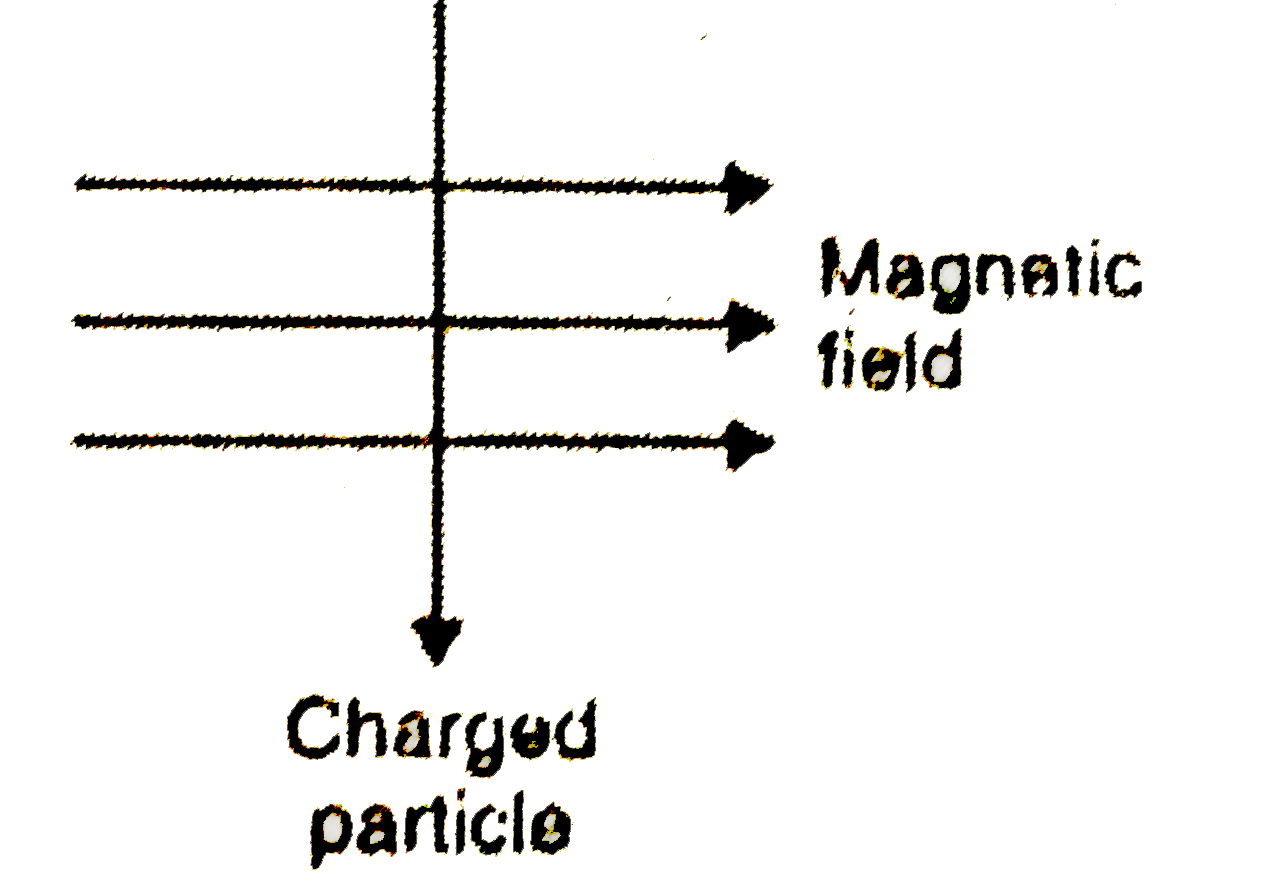A charged particle enters an environment of a strong and non-uniform magnetic field varying from point to point both in magnitude and direction, and comes out of it following a complicated trajectory. Would its final speed equal the initial speed if it suffered no collisions with the environment?
Yes, because magetic force, being perpendicular to direction of velocity, can change the direction of velocity v but cannot change its magnitude.
Topper's Solved these Questions
- MOVING CHARGES AND MAGNETISM BOOK - U-LIKE SERIESCHAPTER - MOVING CHARGES AND MAGNETISM EXERCISE - CASE BASED/SOURCE-BASED INTEGRATED QUESTIONS
18 Videos
- MOVING CHARGES AND MAGNETISM BOOK - U-LIKE SERIESCHAPTER - MOVING CHARGES AND MAGNETISM EXERCISE - MULTIPLE CHOICE QUESTIONS
35 Videos
- MOVING CHARGES AND MAGNETISM BOOK - U-LIKE SERIESCHAPTER - MOVING CHARGES AND MAGNETISM EXERCISE - SELF ASSESSMENT TEST (SECTION D)
1 Videos
- MODEL TEST PAPER 3 (UNSOLVED)BOOK - U-LIKE SERIESCHAPTER - MODEL TEST PAPER 3 (UNSOLVED)EXERCISE - SECTION A
3 Videos
- NUCLEIBOOK - U-LIKE SERIESCHAPTER - NUCLEIEXERCISE - Self Assessment Test
10 Videos
Similar Questions
A charged particle enters a (non-uniform) magnetic field varrying from point to point, both in magnitude and direction, with a certain initial velocity. What do you say about the final velocity of the particle when it leaves the field?
View SolutionA charged particle enters at right angles into a uniform magnetic field as shown :

What should be the nature of charge on the particle if it begins to move in a direction pointing vertically out of the page due to its interaction with the magnetic field ?
View Solution
Knowledge Check
A charged particle begins to move from the origin in a region which has a uniform magnetic field in the x-direction and a uniform electric field in the y-direction. Its speed is v when it reaches the point (x, y, z). Then, v will depend
Aonly on xBonly on yCon both x and y, but not zDon x,y and zA particle enters uniform constant magnetic field region with is initial velocity parallel to the field direction. Which of the following statements about its velocity is correct ?(neglect the effects of other fields )
AThere is change in both magnitude and directionBThere is no changeCThere is change only in magnitudeDThere is change only in directionA charged particle with charge q enters a region of constant, uniform and mutually orthogonal fields →E and →B with a velocity perpendicular to both →E and →B , and comes out without any change in magnitude or direction of →v. Then
A→v=→B×→E/E2B→v=→E×→B/B2C→v=→B×→E/B2D→v=→E×→B/E2
Two identical charged particles moving with same speed enter a region of uniform magnetic field. If one of these enters normal to the field direction and the other enters along a direction at 30∘ with the field, what would be the ratio of their angular frequencies?
View SolutionA charged particle begins to move from the origin in a region which has a uniform magnetic field in the x-direction and a uniform electric field in the y-direction. Its speed is v when it reaches the point (x, y, z). Then, v will depend
View SolutionA particle enters uniform constant magnetic field region with is initial velocity parallel to the field direction. Which of the following statements about its velocity is correct ?(neglect the effects of other fields )
View SolutionAssertion In non-uniform magnetic field speed of a charged particle varies.
Reason Work done by magnetic force on a charged particle is always zero.
View SolutionAssertion In non-uniform magnetic field speed of a charged particle varies.
Reason Work done by magnetic force on a charged particle is always zero.
View Solution
